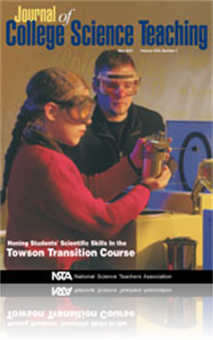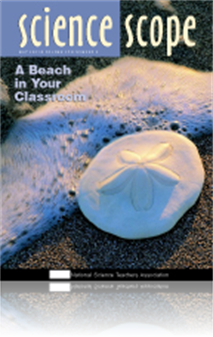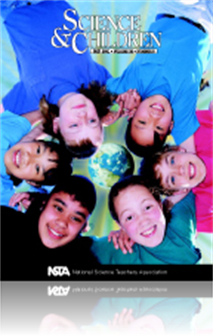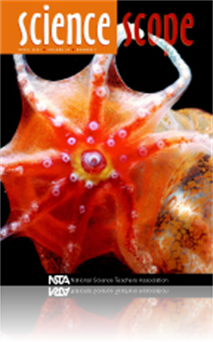All Resources
Journal Article
Teaching Effective Scientific Writing
In an extension of the preceding article, which describes a Towson University course that teaches students to analyze scientific information, this article summarizes the guidelines necessary for students to follow to improve their writing and offers ...
Journal Article
Combining biology, geology, mathematics, geography, and language arts, this activity encourages students to use the scientific method to solve a realistic problem encountered by a fictional field paleontologist. Students learn about the principles of...
Journal Article
Children are naturally curious and passionate about taking care of the world around them. To capitalize on these interests, the unit described in this article was the result of a schoolwide theme entitled People and the Planet (Wasserman 1996). The u...
Journal Article
Integrating Pharmacology into the Organic Chemistry Course
Many nonchemistry majors are unaware of the unity between chemistry and biology and tend to separate the two disciplines conceptually. In a course designed to emphasize health-related issues using a pharmacological approach, students gained a much be...
Journal Article
Analyzing and Communicating Scientific Information
Using collaborative techniques, case studies, and extensive assessment, students in the Towson Transition Course at Towson University learned to access, evaluate, and communicate scientific information. A statistically significant increase in the ave...
Journal Article
The difference between luminescence and incandescence seem simple enough concepts to teach. But to help students develop conceptual understanding, this article features activities from PRISMS (Physics Resources and Instructional Strategies for Motiva...
Journal Article
Idea Bank: Tips and techniques for creative teaching
The Idea Bank provides tips and techniques for creative teaching, in about 1,000 words. This month’s Idea Bank features creative teaching techniques for introducing students to the vast amount of knowledge in the periodic table of elements and an a...
Journal Article
Reflections on Earth—Remote-Sensing Research from Your Classroom
The Smithsonian Institution, with support from Honda, has developed a program entitled Reflections on Earth to provide resources for remote-sensing education. Through this program, teachers and students have access to basic information and instructio...
Journal Article
Technology permeates today’s society, but history also contains rich examples of technology as “a way of adapting.” The Egyptians’ approach to building pyramids, the construction of the Great Wall of China; world-wide canal systems; the desig...
Journal Article
Online Concept Maps: Enhancing collaborative learning by using technology with concept maps
In the early 1990s, the University of West Florida and IBM Latin America investigated establishing telecommunication links among schools. This arrangement—Project Quorum—included public and private schools throughout Latin America from Chile to M...
Journal Article
Adding Math to Biology: Teaching the mathematical basis of evolutionary biology
Without a mathematical understanding of evolutionary theory, we leave students defenseless against shallow arguments and pseudoscience. In this activity, students study normal variation in coral size, and to do the exercise teachers only need relativ...
Journal Article
Examining Language To Capture Scientific Understandings: The Case of the Water Cycle
As teachers of science, we need to keep in mind that thought and language are intricately related. Linguistic approximations, errors, and misses may be useful windows into our children’s developing thoughts and conceptions. Fostering more different...
Journal Article
Commentary: Matchmaker, Matchmaker
An opinion piece about matching and how the pleasure of matching can be found in science class....
Journal Article
Editor's Corner: Convention Fever
The Science Teacher’s editor shares thoughts on the current issue....







